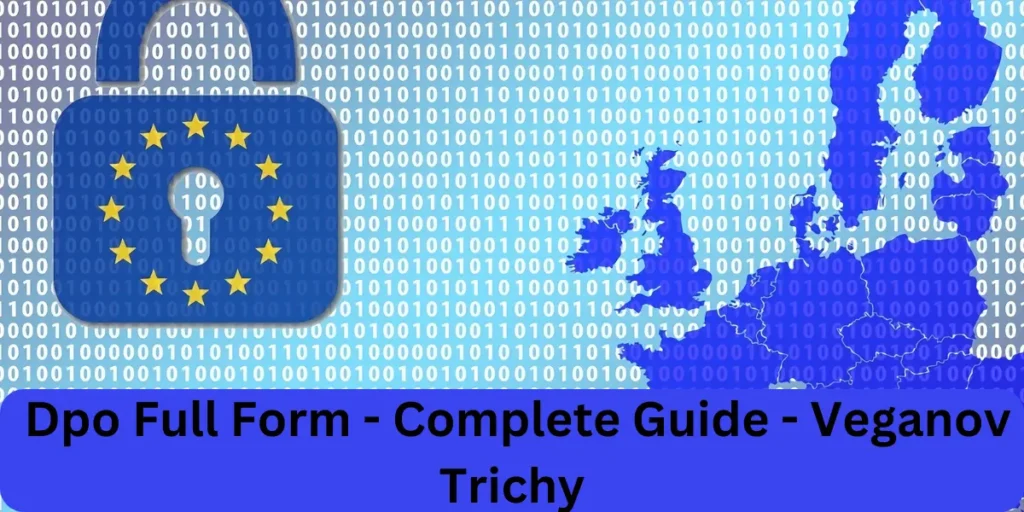Introduction:
Hey there! Let’s dive into the world of “DPO full form.” Ever come across those three letters and wondered what they stand for? Well, fear not, because we’re here to unravel the mystery behind DPO. It’s not some complicated jargon – DPO simply stands for “Data Protection Officer.”
Sounds important, right? Let’s find out more about what this role entails and why it’s crucial in today’s digital landscape.
What does it stand for:

So, what exactly does DPO stand for? DPO stands for “Data Protection Officer.” Basically, this role is like the guardian of your personal information in the digital world. They make sure that organizations handle your data safely and responsibly, following all the rules and regulations. In other words, they’re the ones keeping your privacy intact while you navigate the online realm.
You May Also Like It
Instagram Par Follower Kaise Badhaye With Can Follow Website – Veganov Trichy
1000+ Free Instagram Story Views In 2024 – Veganov Trichy
How To Increase Followers On Instagram With TakipciGir New Update 2024
DPO full form in English:
DPO stands for “Data Protection Officer.” This person is like the data guardian for organizations, ensuring that your personal information stays safe and secure according to the law.
DPO full form in Hindi:
DPO का पूरा अर्थ है “डेटा संरक्षण अधिकारी।” यह व्यक्ति संगठनों के लिए डेटा के संरक्षण का अधिकारी होता है, जो सुनिश्चित करता है कि आपकी व्यक्तिगत जानकारी को कानून के अनुसार सुरक्षित और सुरक्षित रखा जाता है।
Frequently Asked Questions:
What exactly does a Data Protection Officer (DPO) do?
A DPO is responsible for ensuring that organizations handle personal data in compliance with data protection laws. They oversee data protection policies, advise on privacy issues, and act as a point of contact for data subjects and regulatory authorities.
Is appointing a DPO mandatory for all organizations?
The requirement to appoint a DPO varies depending on the jurisdiction and the nature of the organization’s activities. In some cases, such as under the GDPR (General Data Protection Regulation), certain organizations are required to appoint a DPO.
What qualifications are necessary to become a DPO?
While specific qualifications may vary, DPOs typically possess expertise in data protection laws and practices. They may have backgrounds in law, IT security, or privacy management. Good communication skills and an understanding of organizational processes are also important.
How does a DPO ensure compliance with data protection laws?
DPOs monitor the organization’s data processing activities, conduct privacy impact assessments, provide advice on data protection issues, and implement policies and procedures to ensure compliance with relevant laws and regulations.
What role does a DPO play in data breaches?
In the event of a data breach, the DPO plays a key role in managing the incident. They may be responsible for coordinating the organization’s response, notifying affected individuals or authorities as required by law, and implementing measures to prevent future breaches.
Can individuals contact the DPO with privacy concerns?
Yes, individuals can typically contact the DPO with questions or concerns about how their personal data is being handled by the organization. The DPO serves as a point of contact for data subjects and works to address privacy-related inquiries or complaints.
Conclusion:
So, to wrap it up, the role of a Data Protection Officer (DPO) is like having a guardian angel for your personal data. They make sure organizations handle your information safely and follow all the rules. Whether it’s advising on privacy matters or managing data breaches, DPOs play a crucial role in keeping your data secure in today’s digital world. So, next time you hear about a DPO, remember, they’re the ones looking out for you and your privacy online
Extra Points:
- Education and Training: DPOs need to stay updated with the latest data protection laws and best practices. Continuous learning and training help them navigate the ever-changing landscape of privacy regulations effectively.
- Communication Skills: Good communication is key for DPOs. They need to explain complex privacy concepts in simple terms to ensure everyone in the organization understands their responsibilities regarding data protection.
- Collaboration: DPOs work closely with various departments within an organization, including IT, legal, and compliance teams. Collaboration ensures that data protection measures are integrated seamlessly into all aspects of the business.
- Risk Management: Identifying and managing privacy risks is an essential part of the DPO’s role. They conduct privacy impact assessments to evaluate the potential risks associated with new projects or technologies and recommend measures to mitigate them.
- Transparency and Accountability: DPOs promote transparency by ensuring that organizations are open and honest about how they collect, use, and share personal data. They also hold the organization accountable for any breaches of data protection laws.
- Ethical Considerations: DPOs must adhere to high ethical standards when handling personal data. They prioritize the rights and interests of individuals while also balancing the organization’s need for data to achieve its objectives.
- Adaptability: In the fast-paced world of technology, DPOs must be adaptable and able to quickly respond to new challenges and emerging threats to data privacy. Flexibility is key to effectively safeguarding personal information in a rapidly changing environment.
You May Also Like It
Trendzguruji.me – Computer, Cyber, Awareness, SEO, Health & Beauty Guide
TrendzGuruji.me Cyber Insights Hub
“What’s Up with Emerald Gems? Let’s Talk”
.
